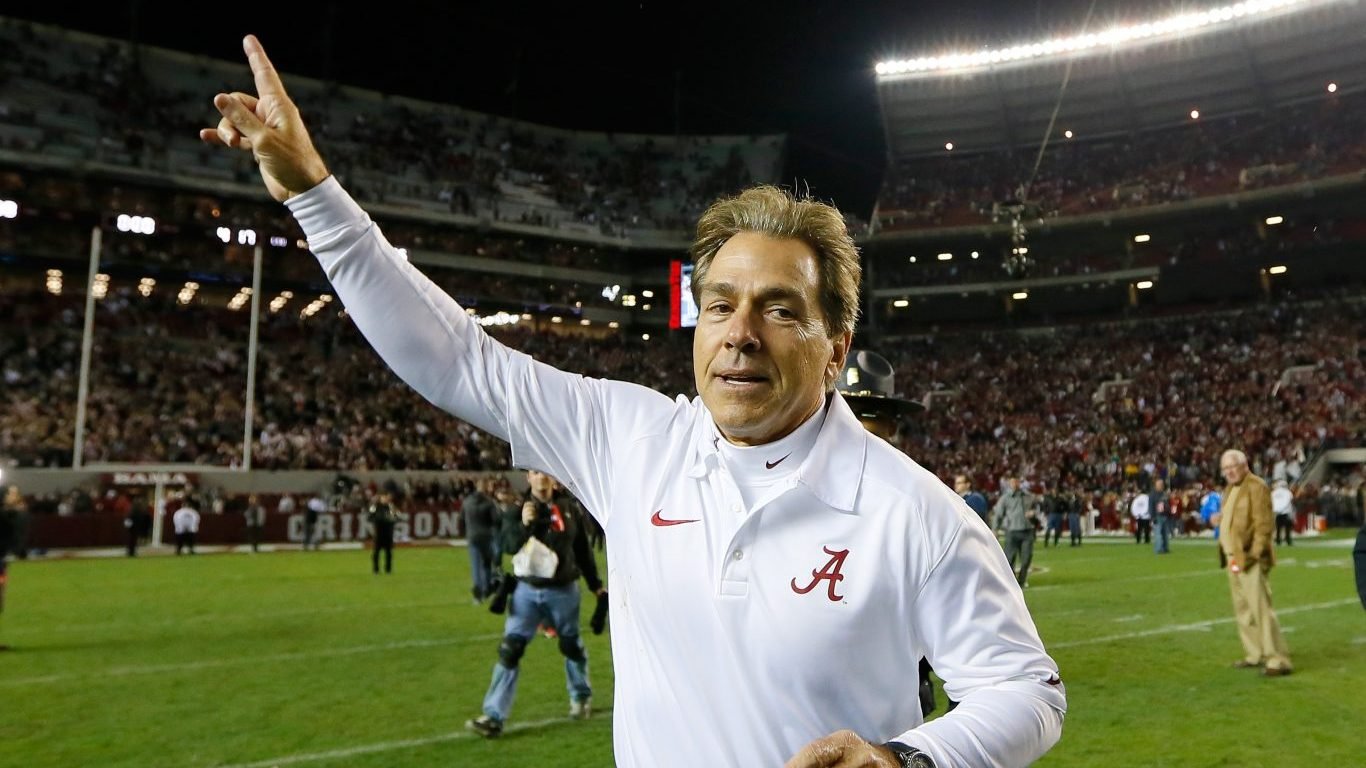

A winning season in sports requires teamwork, talent, and leadership. Even teams with the greatest collections of talent can struggle to win if they don’t have a cohesive locker room and a top notch game plan — two responsibilities that fall onto the shoulders of the head coach.
There have been many teams over the course of sports history that simply got lucky or rode a hot streak to a championship. However, sustained multi-year success requires the steady hand of a good coach. Some coaches and managers in both the professional and college ranks were able to lead their teams to championships over and over again, many times with completely different rosters.
24/7 Wall St. reviewed the sustained success of coaches throughout the history of college and professional sports to determine the greatest coaches of all time.
Coaching varies greatly from sport to sport. In football, for instance, coaches have to make sure their team works as a cohesive unit and that everyone is on the same page. If players mix up the play call, offenses may turn the ball over and defenses can get burned for a long touchdown.
Coaches also need to manage the individual personalities of their players. This can be tricky as there is no one right way to coach. Some are fiery motivators, while others are calm tacticians. As long as these coaches get their players to buy into their methods, they can be successful. The best coaches know what makes their players tick and can provide the right motivation to make athletes play to the best of their abilities.
To determine the greatest coaches of all time, 24/7 Wall St. created an index constructed of winning percentage, championships, and longevity. We reviewed coaches from the NFL, NBA, NHL, MLB, College Football, and College Basketball. Only coaches who won multiple titles were considered.
Click here to see the greatest coaches of all time.
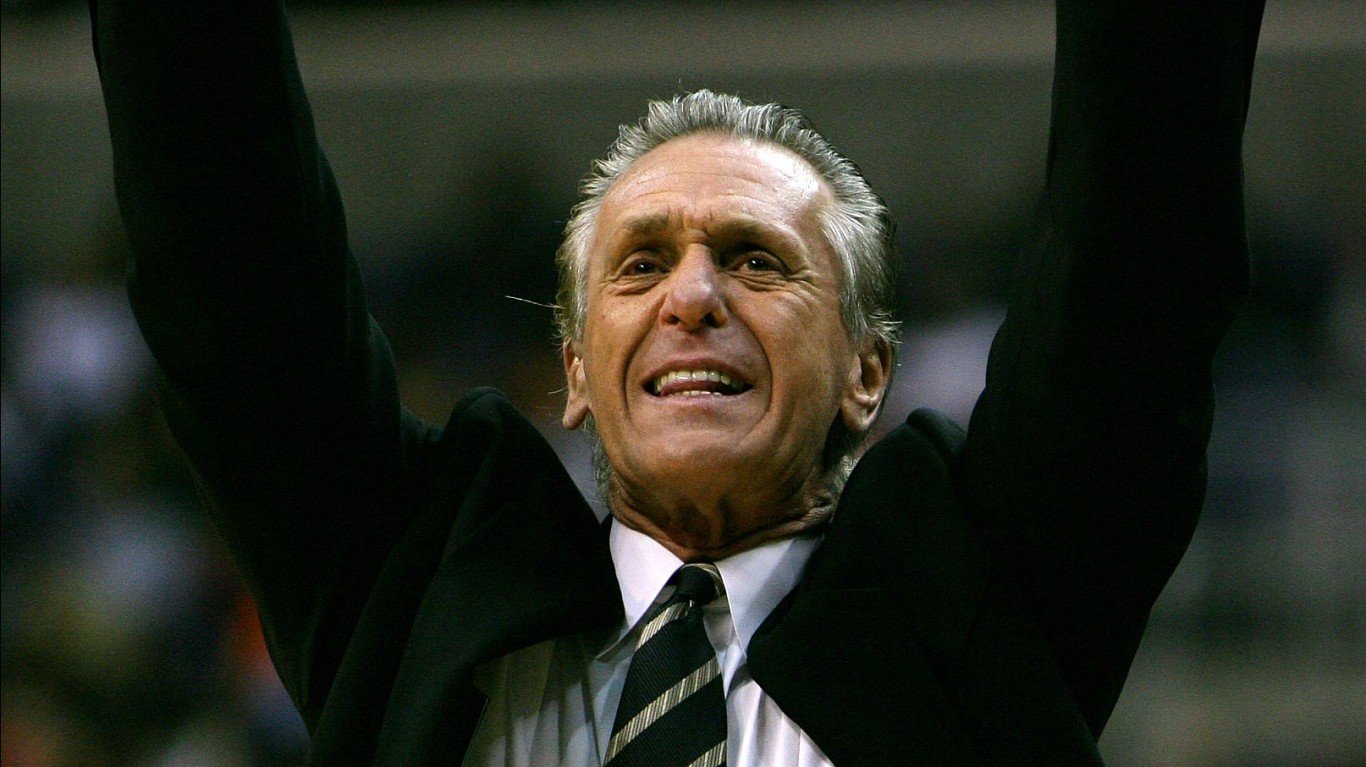
25. Pat Riley
> Teams: Los Angeles Lakers, New York Knicks, Miami Heat
> Record: 1,210-694
> Years active: 1981-1999
> Championships: 5
Pat Riley, known for his slick sartorial persona and motivational speeches, won five NBA championships and is tied for third on the list of coaches with the most NBA titles. He won four titles with Los Angeles Lakers during the “Showtime” era in the 1980s with stars like Kareem Abdul-Jabbar, Magic Johnson, and James Worthy, and one with the Miami Heat in 2005-06 with Dwyane Wade. Riley’s teams reached the NBA Finals nine times. His 1,210 regular season victories place him fourth on the NBA’s all-time list. As a player, Riley helped the Lakers win the NBA title in 1971-72.
[in-text-ad]
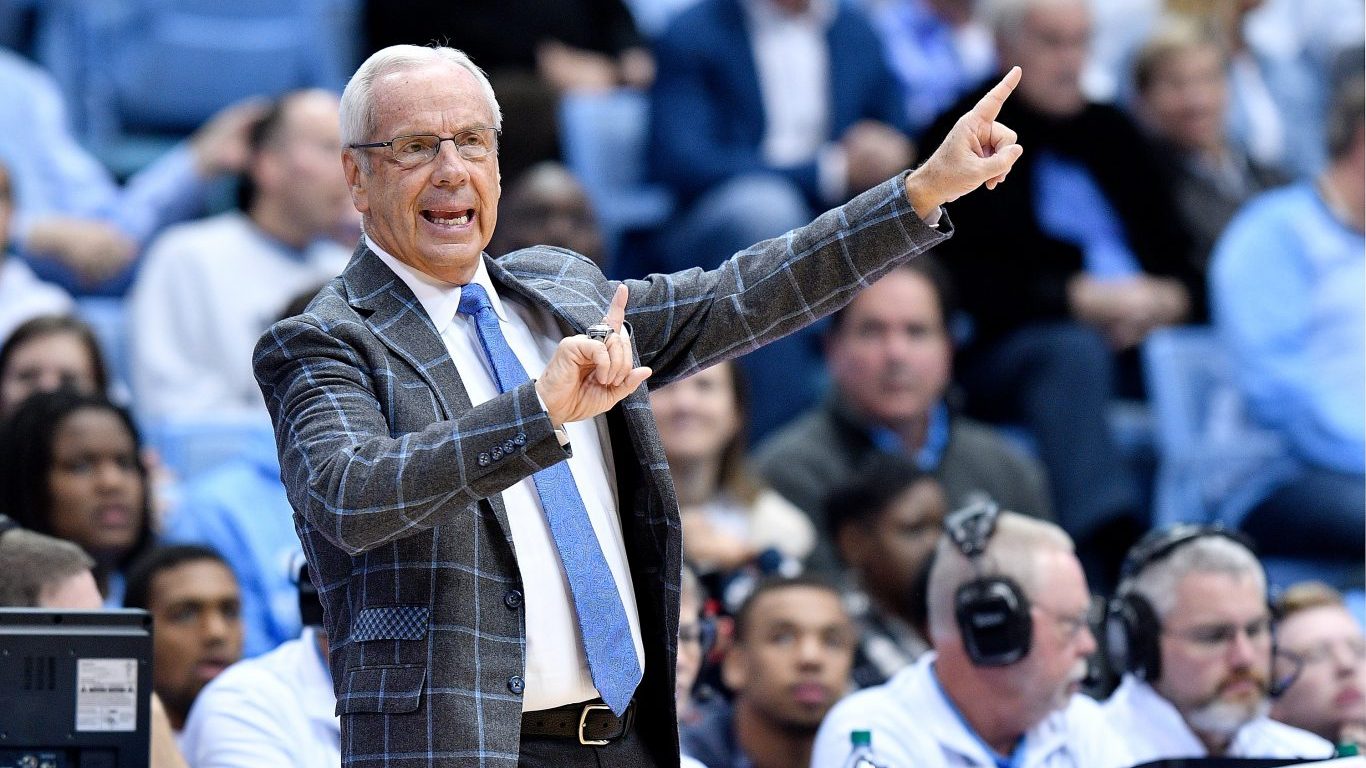
24. Roy Williams
> Teams: Kansas, North Carolina
> Record: 847-227
> Years active: 1988-present
> Championships: 3
Roy Williams has coached two of the most storied programs in college basketball: Kansas and North Carolina. From 1990 to 2003, he led the Jayhawks to 14 straight NCAA tournament berths. But all of his postseason success came at North Carolina, winning NCAA titles in 2005, 2009, and 2017. Williams has coached 11 consensus All-Americans, including NCAA and NBA legend Paul Pierce.
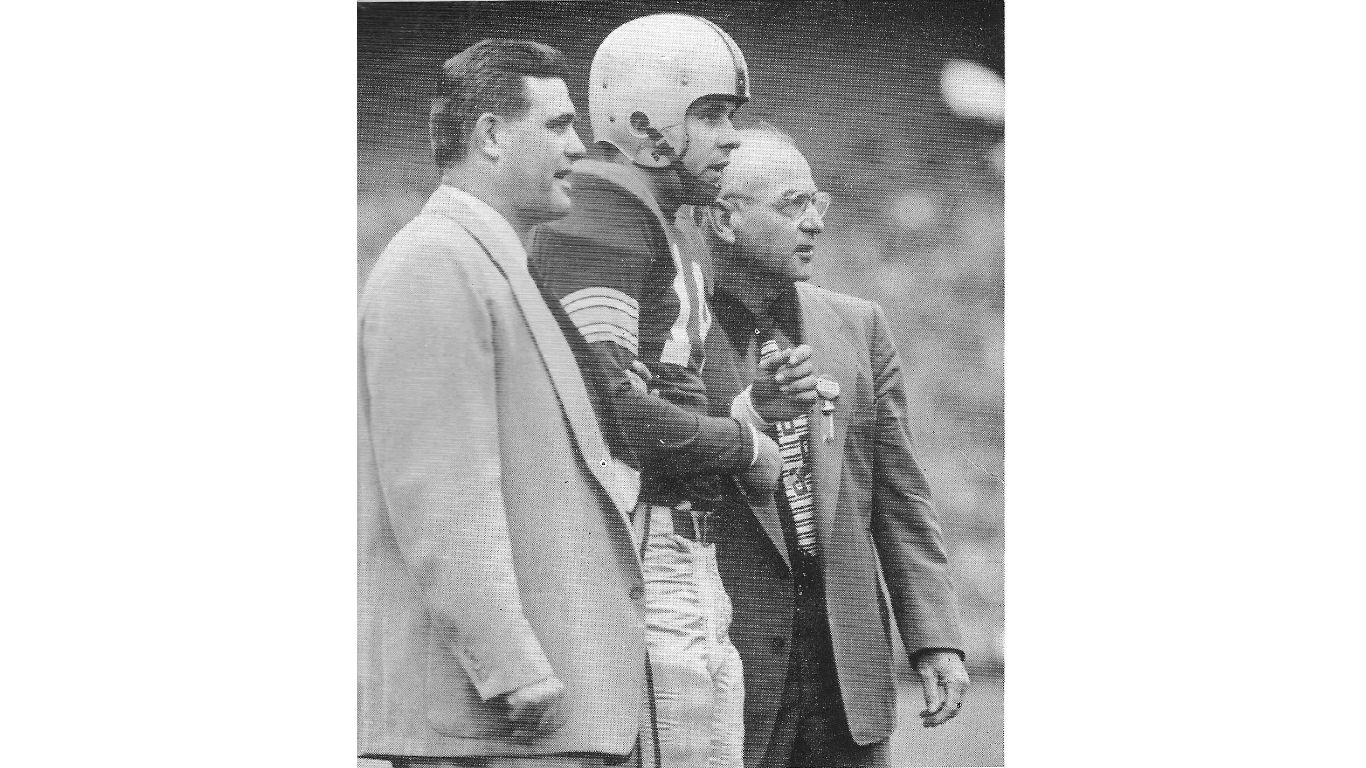
23. Woody Hayes
> Teams: Ohio State
> Record: 205-61-10
> Years active: 1951-1978
> Championships: 5
Woody Hayes was an intense presence on the Ohio State sideline. A student of military history, he coached his entire career at OSU and led the Buckeyes to three consensus national championships and laid claim to two others in the years before the college football playoff system. Four of his teams went undefeated, and two of those squads tied just one game during the season. In a 28-year career, Hayes compiled a winning percentage of 76.1%. Hayes was prone to violent temper displays and one such episode cost him his job. He punched a Clemson player at the end of the 1978 Gator Bowl and was fired by the university’s administration, ending his coaching career.
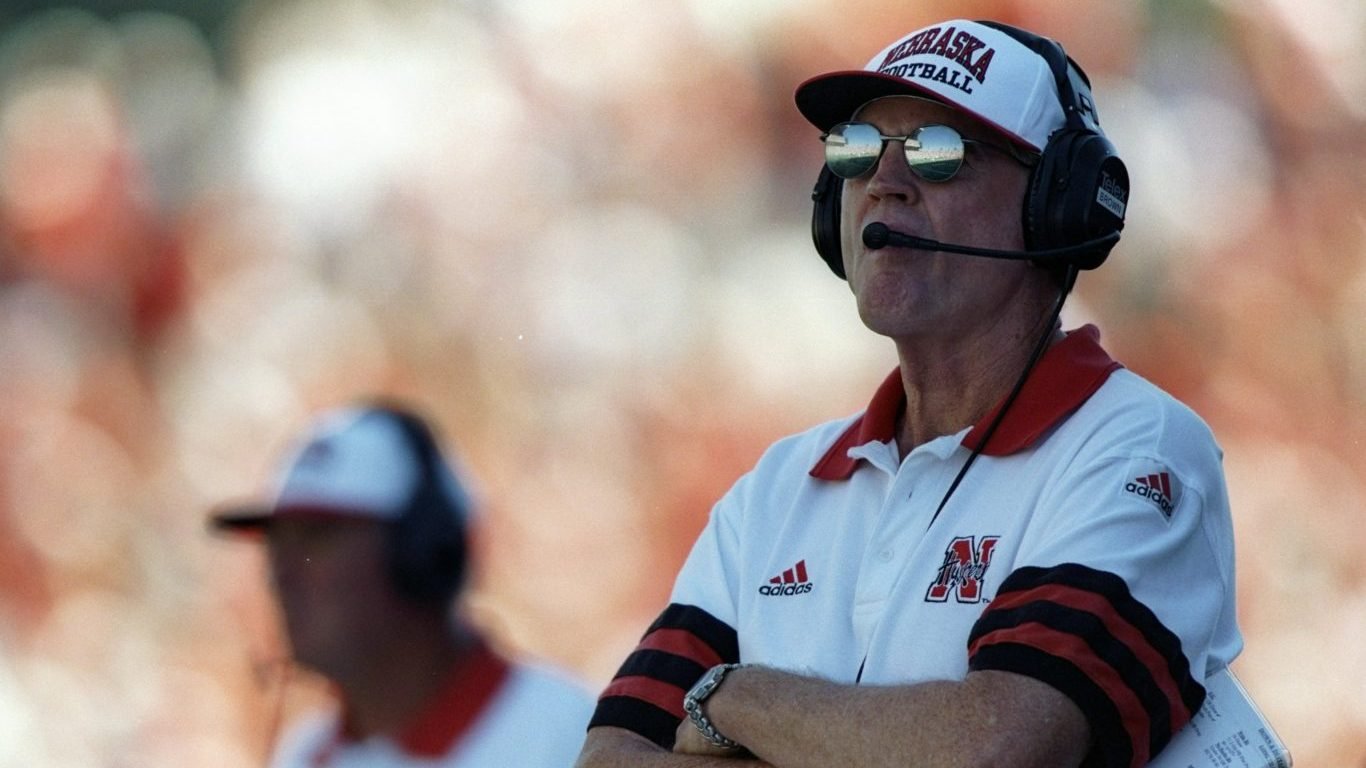
22. Tom Osborne
> Teams: Nebraska
> Record: 255-49-3
> Years active: 1973-1997
> Championships: 3
Tom Osborne was head coach of the University of Nebraska Cornhuskers for 25 years, and his teams dominated the Big 8 Conference, beginning in 1973. The Cornhuskers won the national championship three times, and during the Osborne era, Nebraska had a winning percentage of 83.6%. Nebraska produced 25 All-Americans during Osborne’s tenure, including wide receiver Irving Fryar, running back Mike Rozier, and linebacker Trev Alberts. Despite his success, the taciturn Osborne was dogged by the perception that he could not win the big game. Part of this belief stemmed from his 12-13 bowl record that included seven Orange Bowl losses, perhaps most famously the 1984 defeat at the hands of the University of Miami.
[in-text-ad-2]
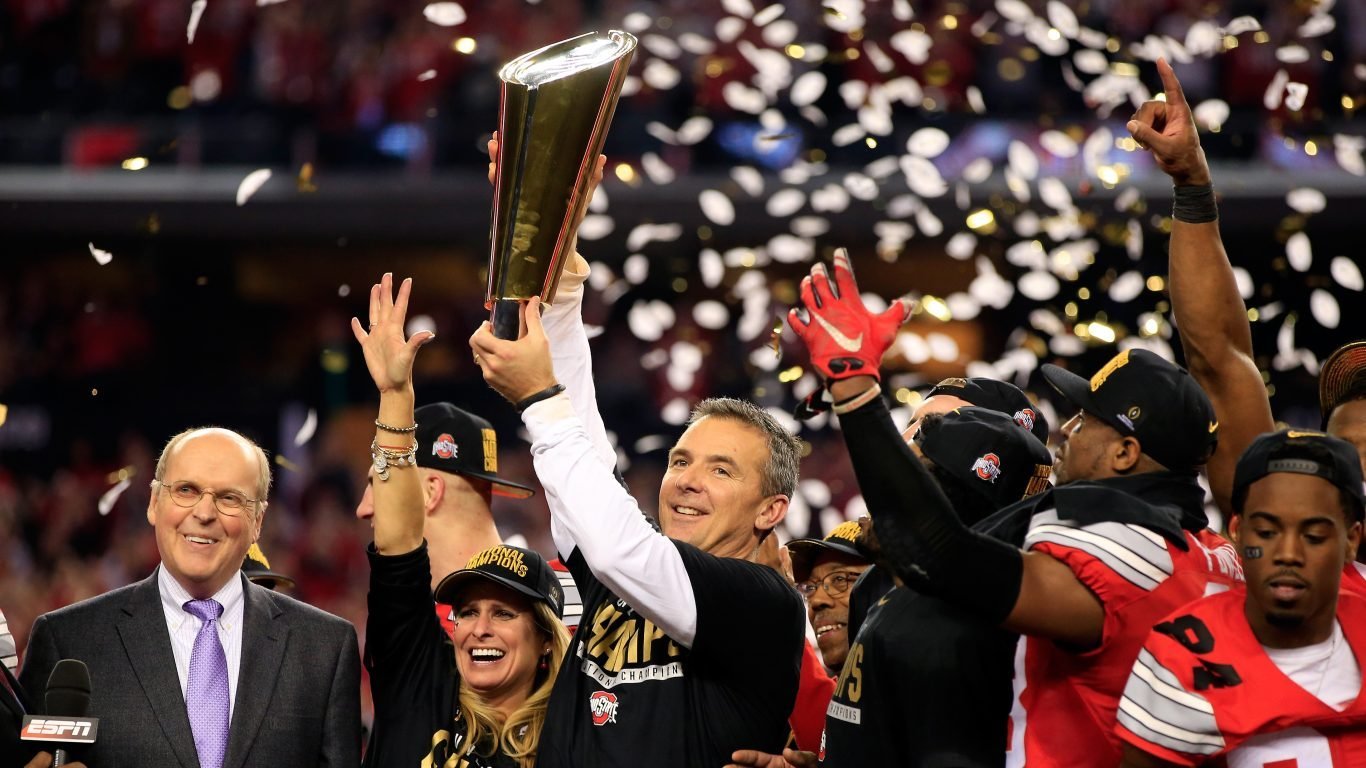
21. Urban Meyer
> Teams: Bowling Green State, Utah, Florida, Ohio State
> Record: 184-32
> Years active: 2001-present
> Championships: 3
Urban Meyer quickly moved up the coaching ranks early in his career. After making Bowling Green State and Utah into some of the best football teams in the country, Meyer took over the Florida Gators in 2005. He quickly led the team to two national championships in the 2006 and 2008 seasons, memorably led by quarterback Tim Tebow. Meyer left Gainesville for health reasons after the 2010 season but returned to coach Ohio State in 2012. He again made his new program into a winner, claiming the 2014 National Championship. Meyer became the second ever college football coach, after Nick Saban, to win a consensus title at two different schools.
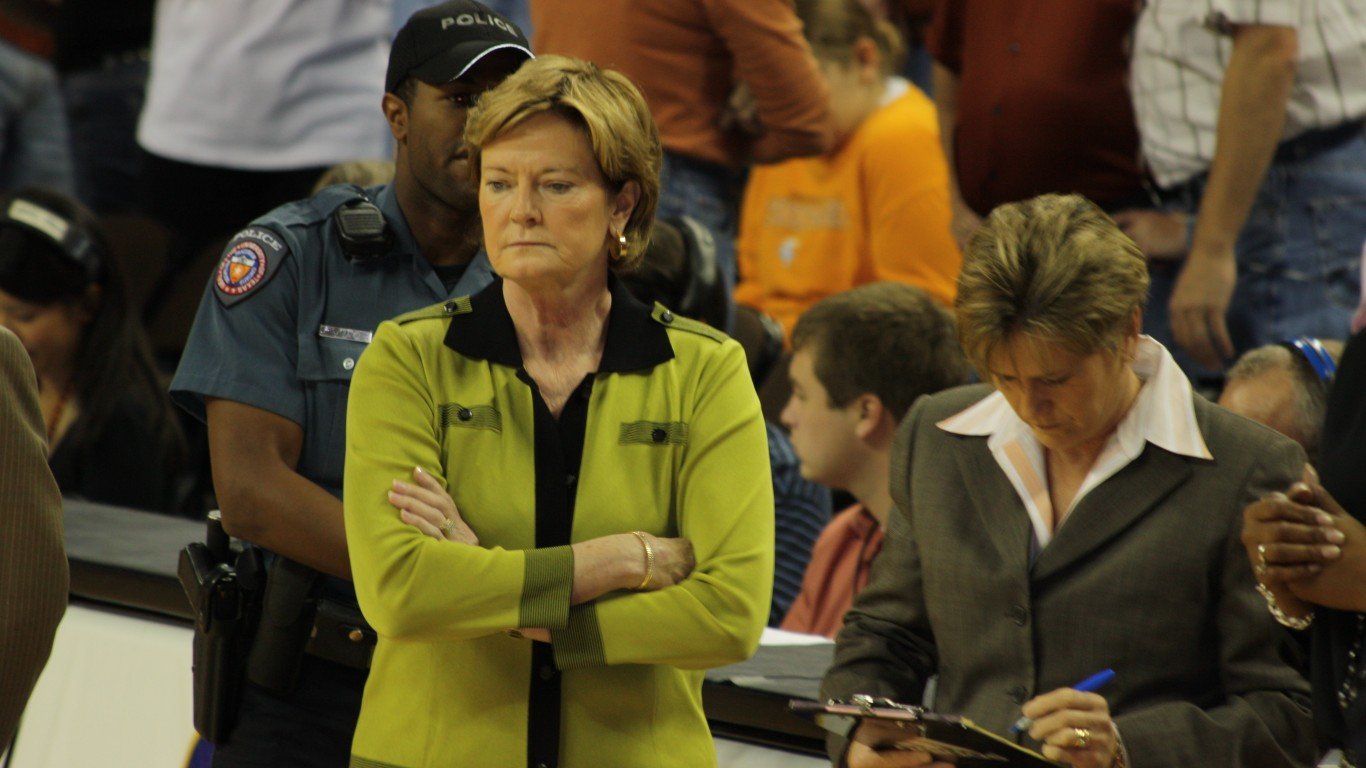
20. Pat Summitt
> Teams: Tennessee
> Record: 1098-208
> Years active: 1974-2012
> Championships: 8, one gold medal
At just 22 years old, Pat Summitt became the head coach of the fledgling Tennessee women’s basketball team. She built that program into a dynasty, winning six championships between 1987-1998, rounding it out with an undefeated 1997-1998 season. The Volunteers later won back-to-back titles in 2007 and 2008. Summitt also coached the US Women’s National Team to a gold medal in the 1984 Olympics.
[in-text-ad]
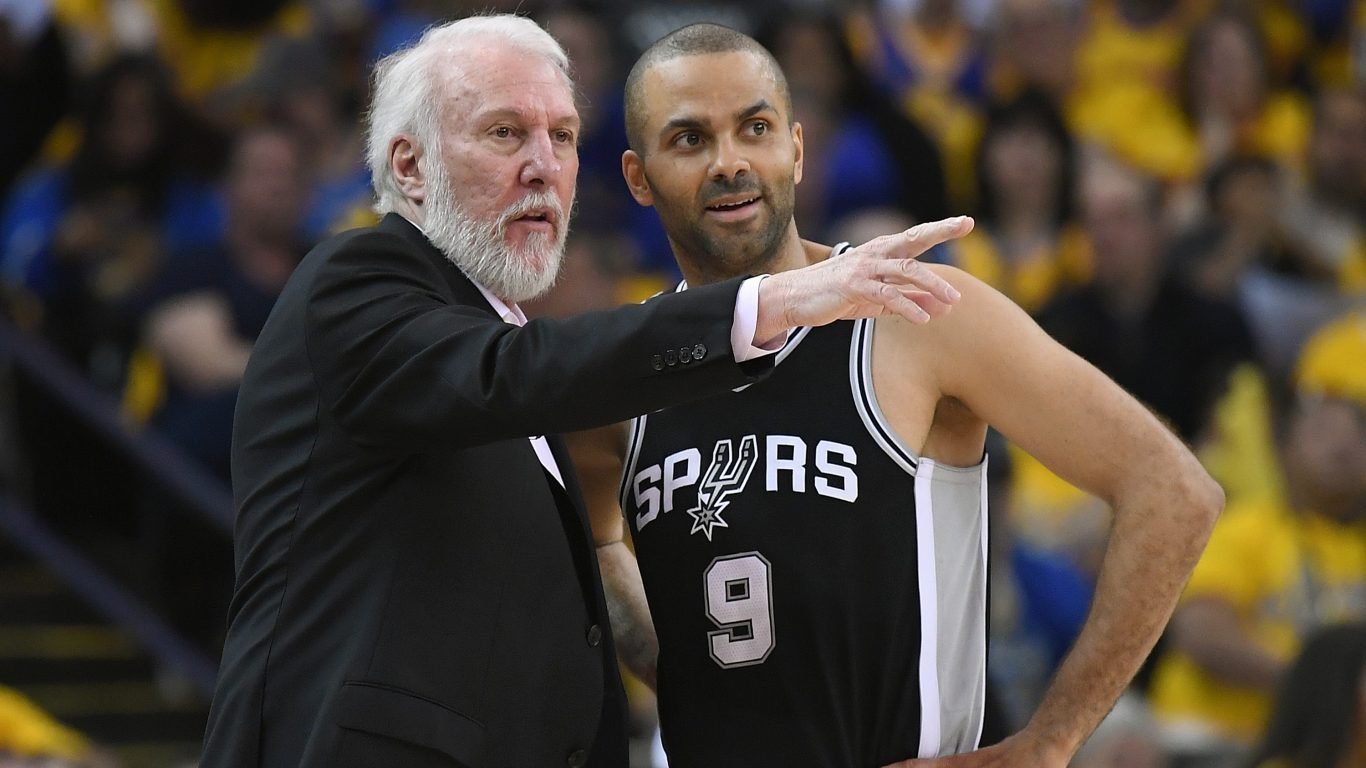
19. Gregg Popovich
> Teams: San Antonio Spurs
> Record: 1205-549
> Years active: 1996-present
> Championships: 5
For decades, the NBA has been dominated by the Boston Celtics and Los Angeles Lakers, two franchises that hold a combined 33 titles. But the San Antonio Spurs have been able to find success in recent years, largely thanks to coach Gregg Popovich. Since taking over in 1996, Popovich has never missed the playoffs in any full season he has coached. Pop led San Antonio to five NBA championships, along with all-time great player Tim Duncan. Though Popovich can come off as prickly in his interviews, he is beloved by his players and Spurs fans alike.
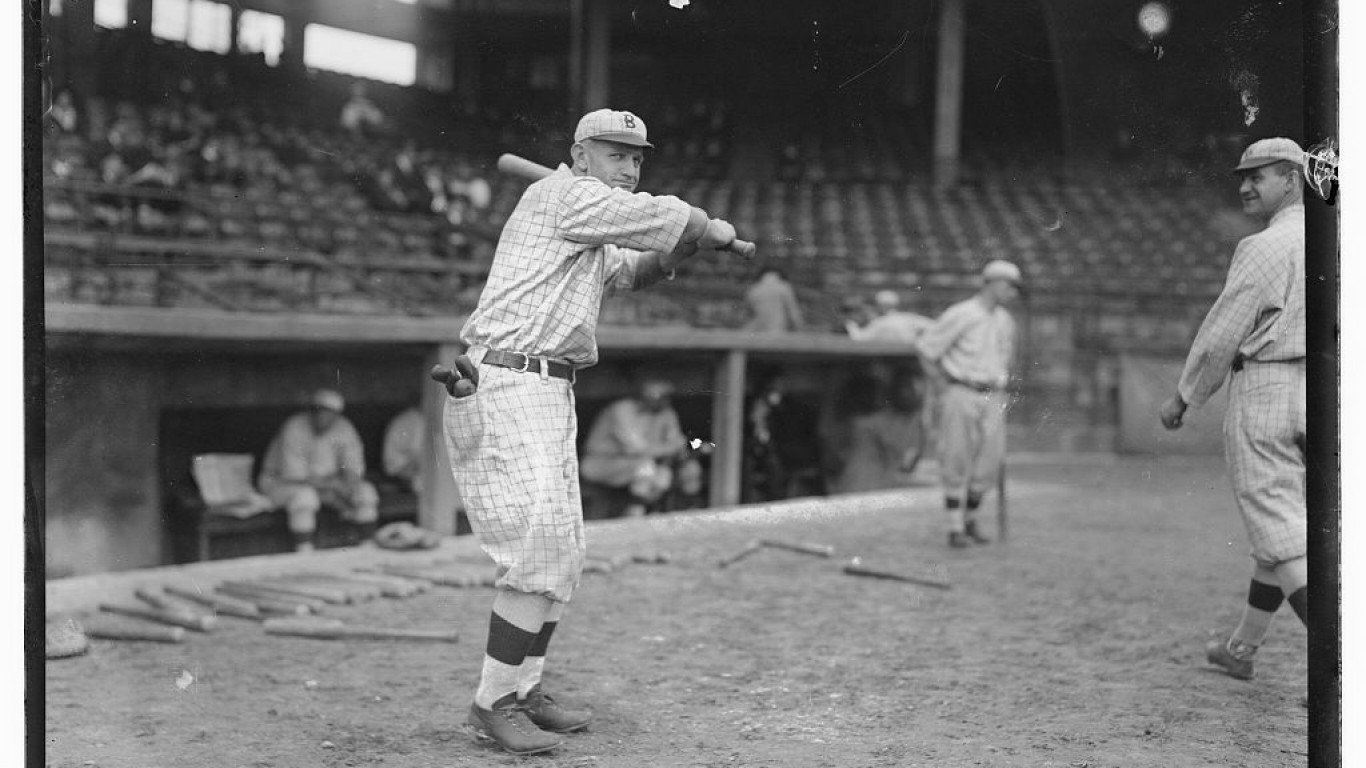
18. Casey Stengel
> Teams: Brooklyn Dodgers, Boston Bees/Braves, New York Yankees, New York Mets
> Record: 1,905-1,842-19
> Years active: 1934-1965
> Championships: 7
Casey Stengel, nicknamed the “Old Perfessor,” managed four teams over a 25-year career. He is known for implementing a platoon system, in which two players — usually one right-handed and one left-handed — share playing time. Though Stengel was known for his clownish persona, he was all business as the Yankees skipper, winning 10 American League pennants and seven World Series titles, and rolling up a winning percentage of about 69.6%. He was fired following the Yankees loss in the 1960 World Series, after which he famously said “I’ll never make the mistake of being 70 again.” Stengel had one last act as manager, shepherding the expansion New York Mets in their first four years of their existence.
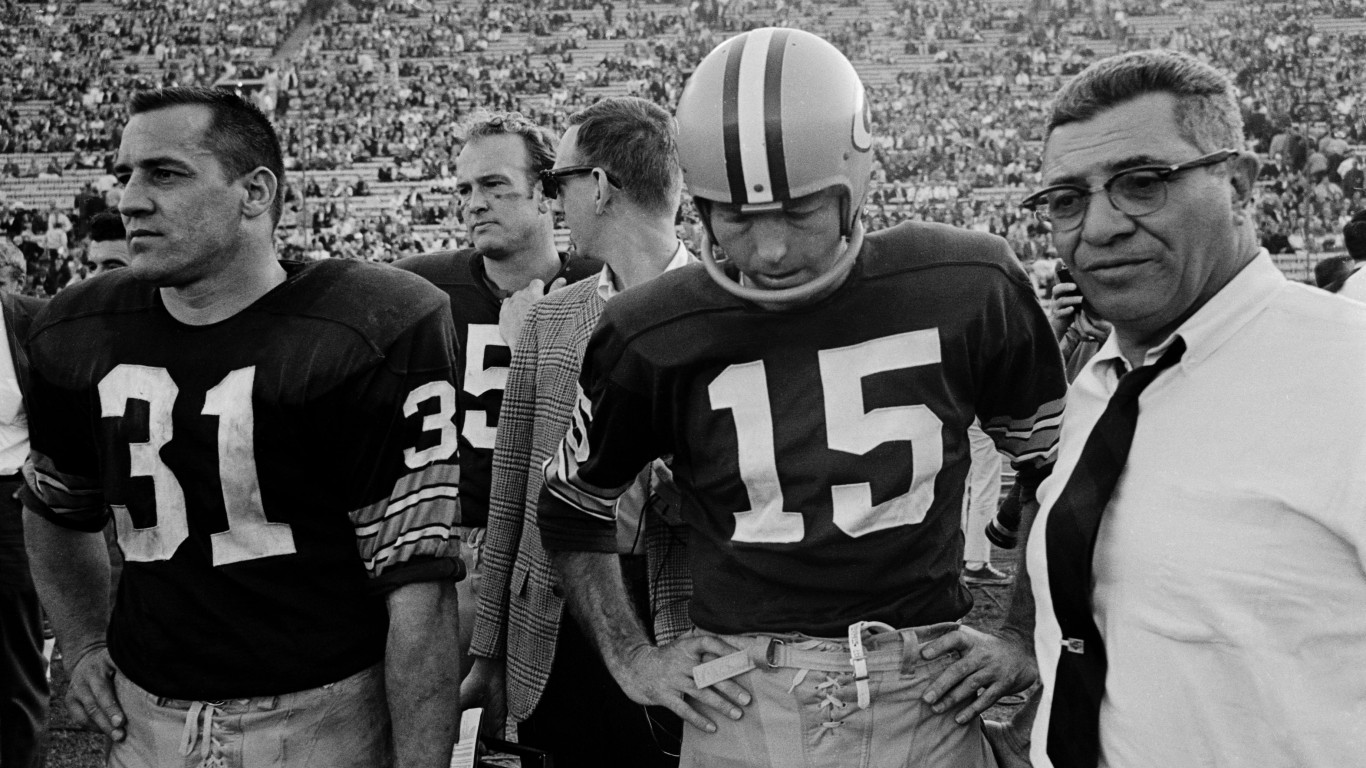
17. Vince Lombardi
> Teams: Green Bay Packers, Washington Redskins
> Record: 96-34-6
> Years active: 1959-1969
> Championships: 5
Vince Lombardi only coached the Green Bay Packers for nine years, but his impact on the franchise was immense. The Packers went 1-10-1 in 1958, the year before Lombardi arrived. He immediately turned the franchise around and won two straight NFL championships in 1961 and 1962. The Packers would go onto win three more NFL titles in 1965, 1966, and 1967. Those last two titles earned them the right to play in a new game — the Super Bowl. Lombardi’s Packers claimed the first two Super Bowl titles, crushing the Chiefs and Raiders of the AFL. The Super Bowl trophy is now named in his honor.
[in-text-ad-2]
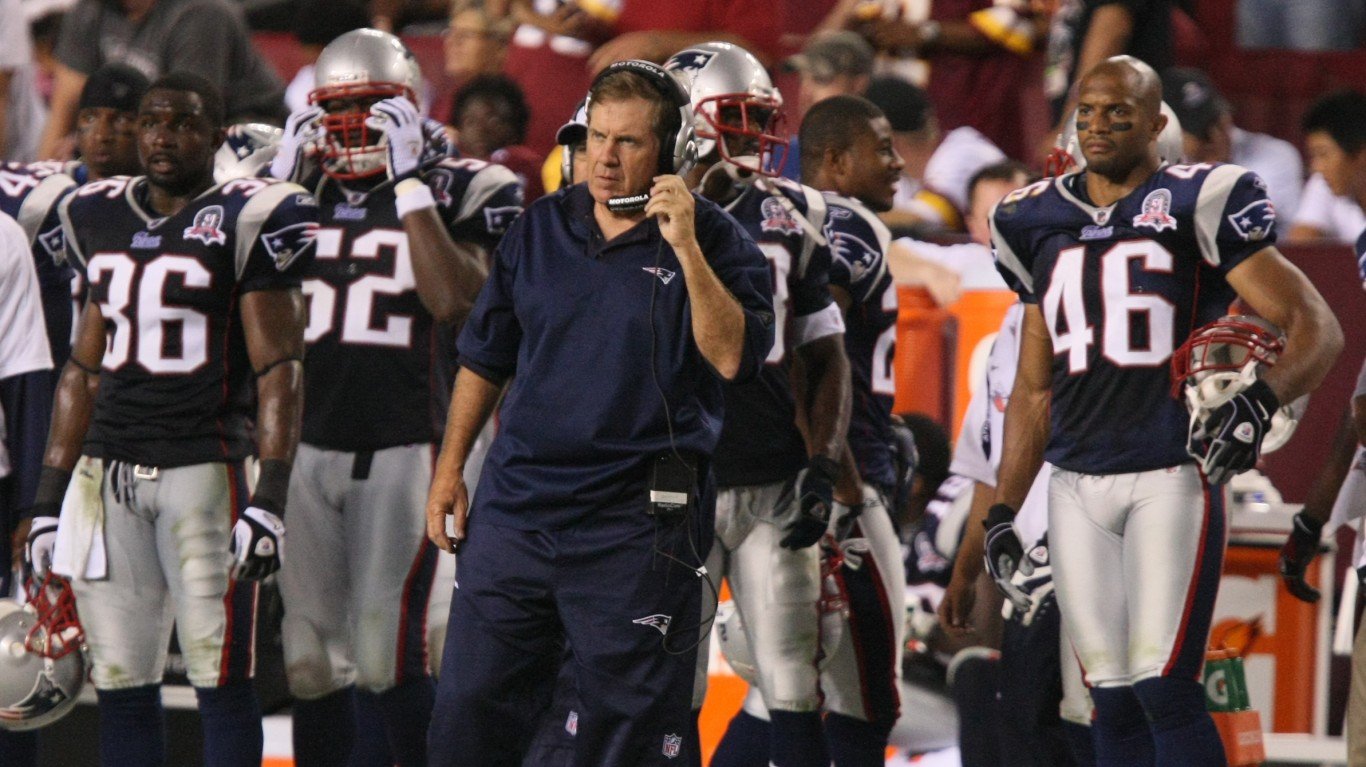
16. Bill Belichick
> Teams: Cleveland Browns, New England Patriots
> Record: 257-121
> Years active: 1991-2018
> Championships: 5
Bill Belichick is the architect of the greatest dynasty of the NFL’s Super Bowl era. Since Belichick teamed up with Tom Brady in 2001, the New England Patriots have been perennial contenders to win the Super Bowl. Belichick coached the Browns for five years starting in 1991 before that franchise left for Baltimore and fired him. That turned out to be a mistake as Belichick has proven to be a mastermind. Since taking over New England, Belichick has amassed a 74.2% winning percentage, eight Super Bowl appearances, and five championships — more than any other coach of the recent era.
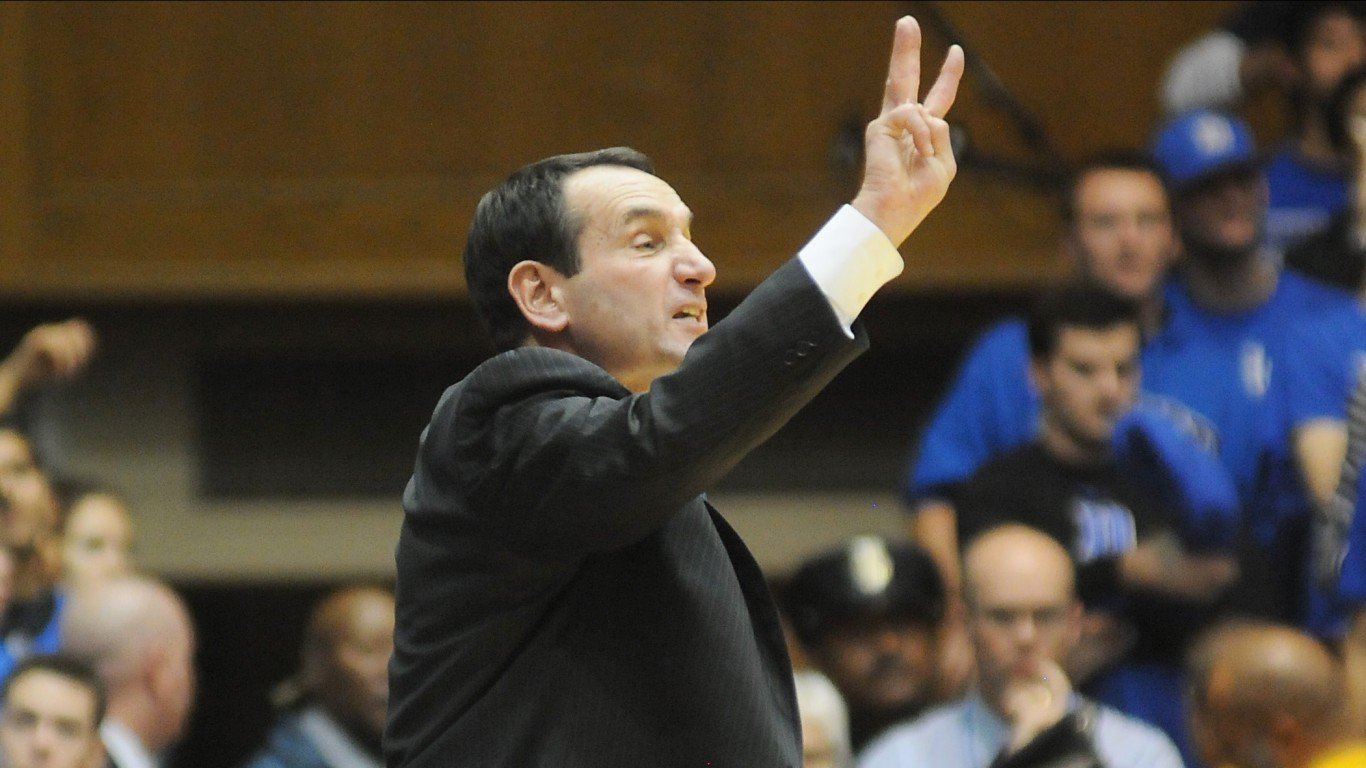
15. Mike Krzyzewski
> Teams: Army, Duke
> Record: 1104-338
> Years active: 1975-present
> Championships: 5
Mike Krzyzewski has had a remarkable run since taking over Duke’s basketball program in 1980, and it looks as if the run is poised to continue. Krzyzewski led the Blue Devils to five NCAA National Championships in three different decades, the most recent in 2015. Under Coach K’s leadership, a skill he honed while coaching at his alma mater of West Point, Duke has made a dozen Final Fours. Duke has made the NCAA tournament each year since 1996, and with a loaded roster for the 2018-2019 season, featuring top overall recruit Zion Williamson, it appears that trend will continue.
[in-text-ad]
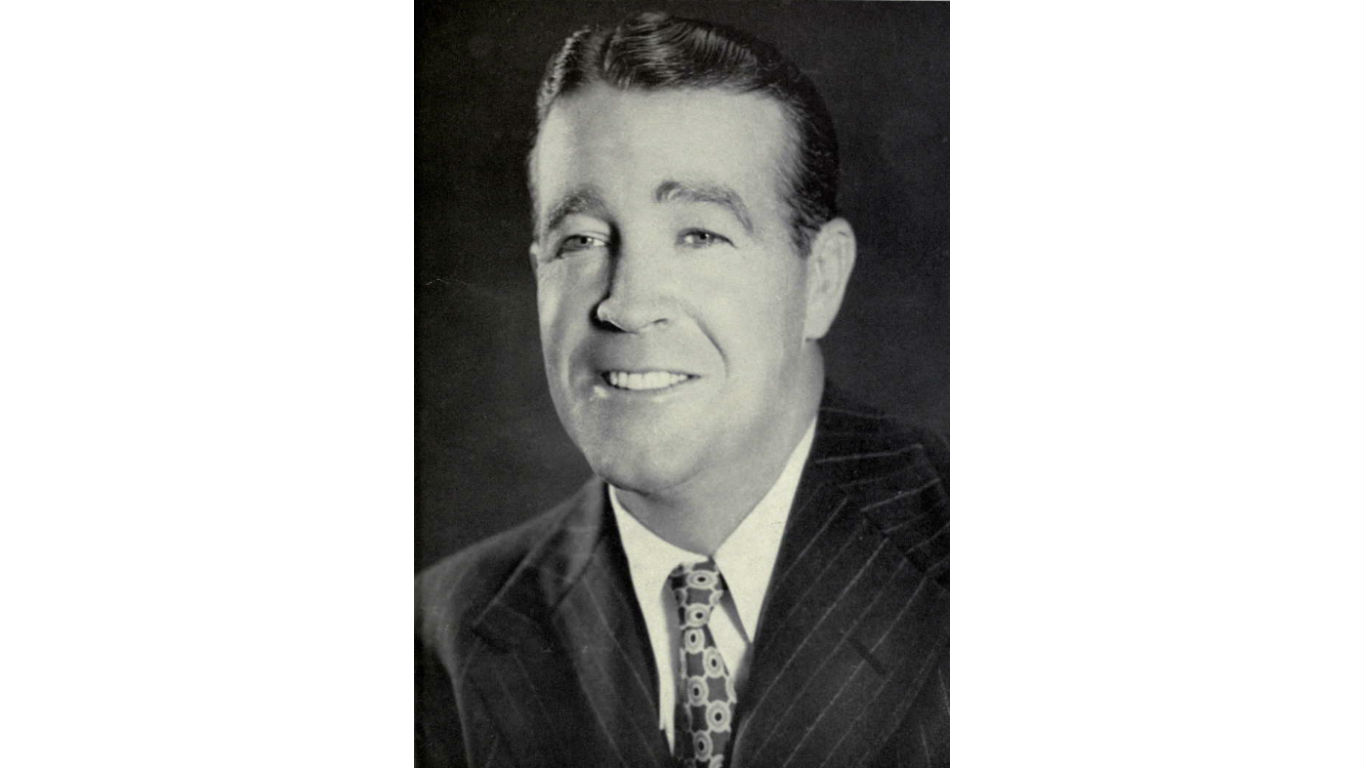
14. Frank Leahy
> Teams: Boston College, Notre Dame
> Record: 107-13-9
> Years active: 1939-1953
> Championships: 5
Frank Leahy built on the great football tradition at the University of Notre Dame in the 1940s, leading the Fighting Irish to four consensus national championships. Before he coached at Notre Dame, Leahy prowled the sidelines for two years at Boston College, leading the Eagles to an undefeated season in 1940, and he laid claim to a share of a national title there. He decamped to Notre Dame the next season, and his T-formation offense powered the Irish to six unbeaten seasons and to a winning percentage of 86.4% in the 11 years at South Bend, Indiana. Leahy coached four Heisman Trophy winners — Angelo Bertelli, Johnny Lujack, Leon Hart, and Johnny Lattner — and recruited a fifth, Paul Hornung, who played for Notre Dame after Leahy retired.
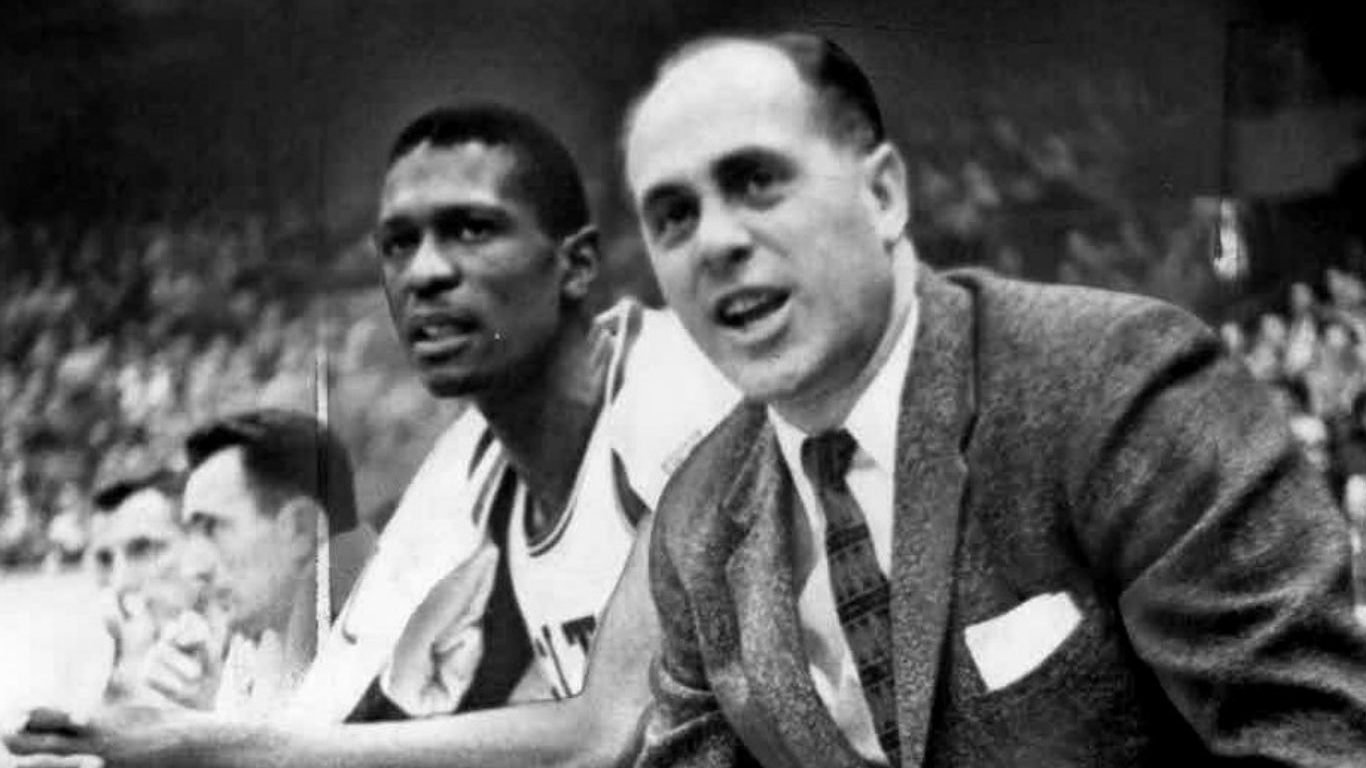
13. Red Auerbach
> Teams: Washington Capitals, Tri-Cities Blackhawks, Boston Celtics
> Record: 938-479
> Years active: 1947-1966
> Championships: 9
When Red Auerbach would light his trademark cigar, it meant the Boston Celtics were on their way to victory. During the 1950s and 1960s, that happened a lot. Auerbach could be abrasive and combative, but there was no denying his success. With players like Bill Russell, K.C. Jones, Bob Cousy, and John Havlicek plying the hardwood, the fast-breaking Celtics were an NBA juggernaut, winning nine titles under the tutelage of Auerbach. He had just one losing season in a 20-year coaching career. A basketball Hall of Famer, Auerbach was recognized in 1980 as the greatest coach in NBA history by the Professional Basketball Writers Association of America.
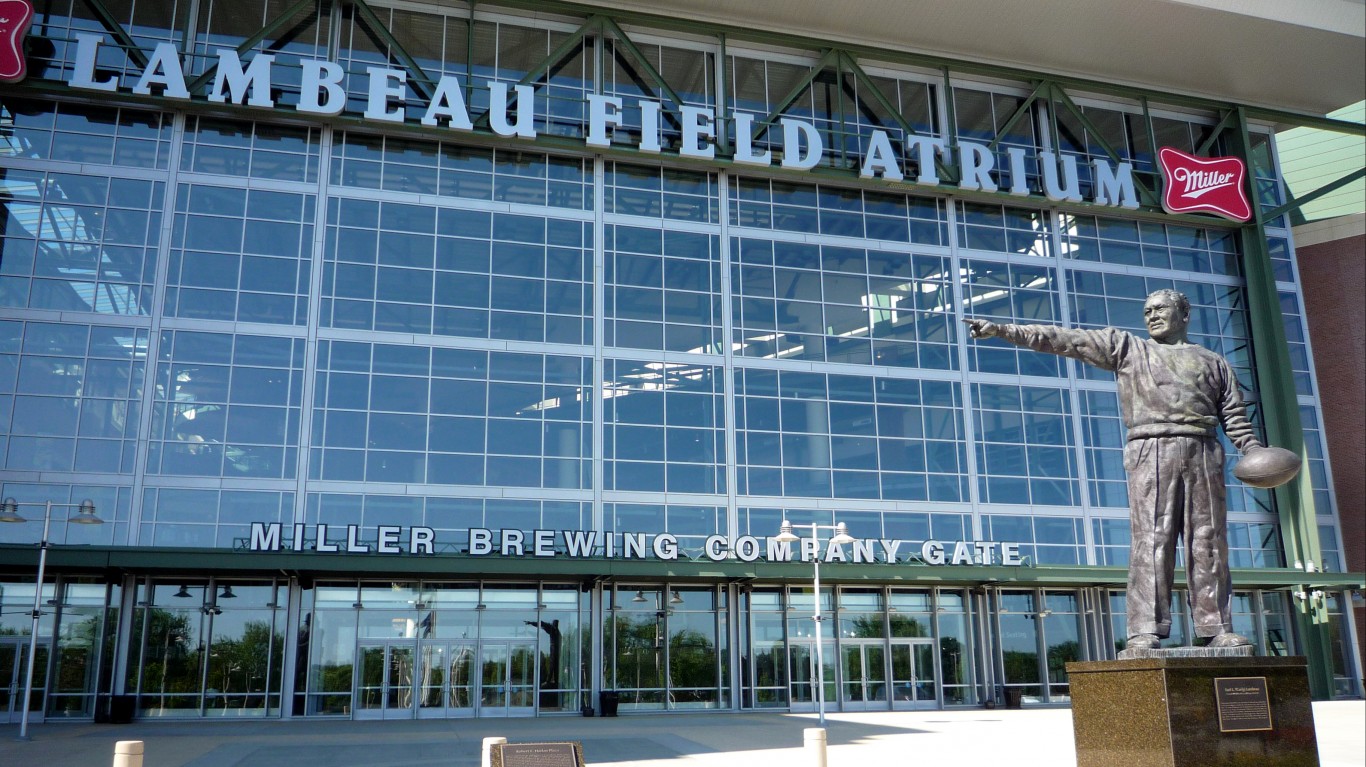
12. Curly Lambeau
> Teams: Green Bay Packers, Washington Redskins
> Record: 226-132-22
> Years active: 1921-1953
> Championships: 6
In 1921, at the age of just 23, Curly Lambeau became the first coach of the Green Bay Packers — a post at which he would remain for 29 years. Lambeau also played tailback from 1921 to 1929, winning a championship in his final season with the team. After hanging up his cleats, Lambeau led the Packers to two more titles in 1930 and 1931, this time as just the coach. Green Bay would continue its success under Lambeau’s leadership, playing for five more NFL championships and winning three in 1936, 1939, and 1944. Though he coached the Chicago Cardinals and Washington Redskins for two years each at the end of his career, Lambeau will always be a Packer legend. Green Bay’s field is named in his honor.
[in-text-ad-2]
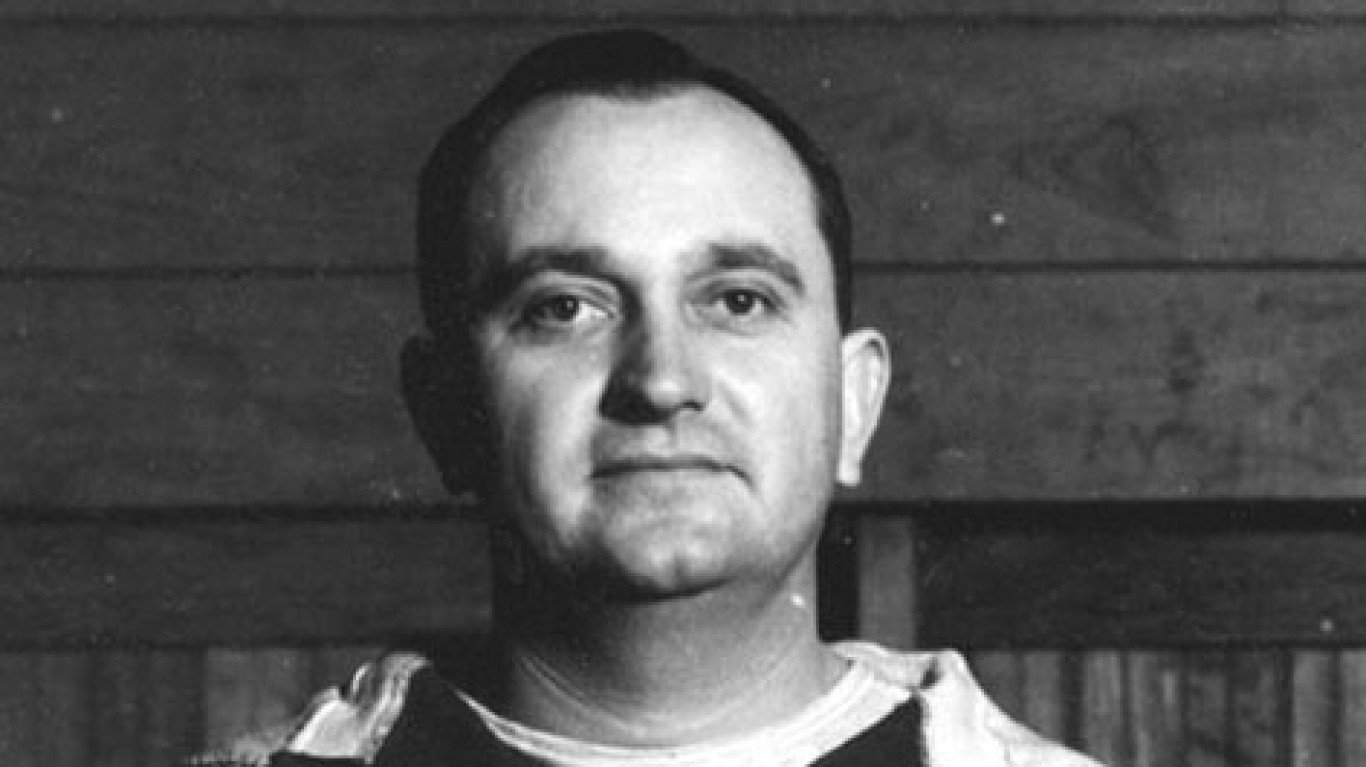
11. Adolph Rupp
> Teams: Kentucky
> Record: 876-190
> Years active: 1930-1972
> Championships: 4
Kentucky basketball is one of the most storied programs in college athletics, largely because of Adolph Rupp. Rupp’s Wildcats won an astonishing 82.2% of the games they played during his 41-year tenure, including a 25-0 1953-1954 season. Rupp, known as the Baron of the Bluegrass, led Kentucky to four NCAA Tournament championships. Perhaps most impressively, the Wildcats never had a losing season under Rupp.
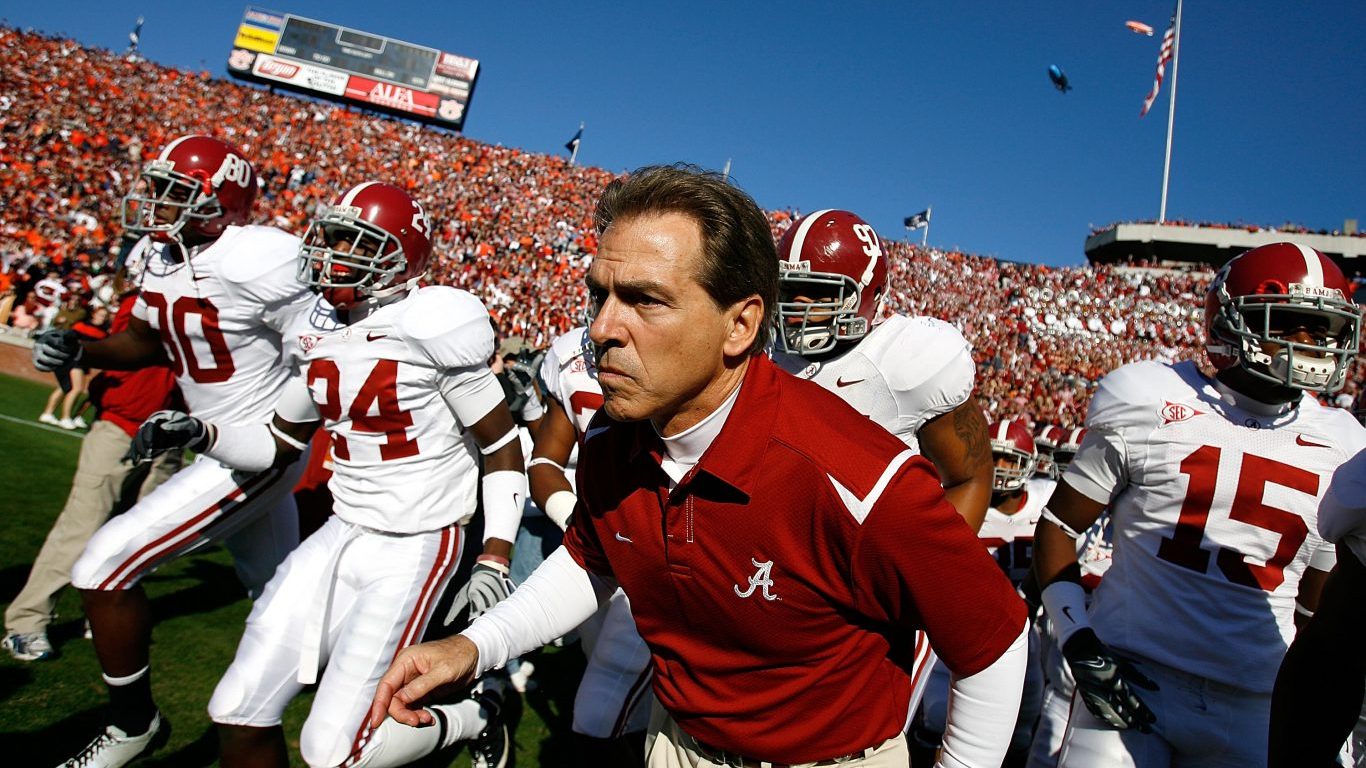
10. Nick Saban
> Teams: Toledo, Michigan State, LSU, Alabama
> Record: 234-62-1
> Years active: 1990-present
> Championships: 6
Nick Saban seems poised to become the undisputed greatest college football coach of all time. He quickly moved up the coaching ranks, from Toledo to Michigan State to LSU, where he won his first National Championship after the 2003 season. Saban led the Miami Dolphins for two seasons in 2005 and 2006 before returning to college football, this time at Alabama. Saban has led the Crimson Tide to five Championships since arriving in Tuscaloosa in 2007. He now holds the same number of titles as Alabama legend Bear Bryant, though his recruiting ability has ensured that Alabama will be national title favorites for years to come.
[in-text-ad]

9. Bear Bryant
> Teams: Maryland, Kentucky, Texas A&M, Alabama
> Record: 323-85-17
> Years active: 1945-1982
> Championships: 6
Paul Bryant had a commanding presence befitting a man nicknamed “Bear,” a moniker he got in his youth when he wrestled a bear. Bryant, sporting his signature houndstooth hat, crafted a legacy of college football excellence that made Alabama a national powerhouse. The Tide played with a ferocity that reflected the demeanor of its coach. Bryant’s 323 victories had been the most in major college football until Joe Paterno of Penn State and Florida State’s Bobby Bowden overtook him. Bryant won six national championships at Alabama, where he won 82.4% of his games in 25 years. Bryant coached four colleges in his 38-year career, took 29 squads to bowl games, and only had one losing season.
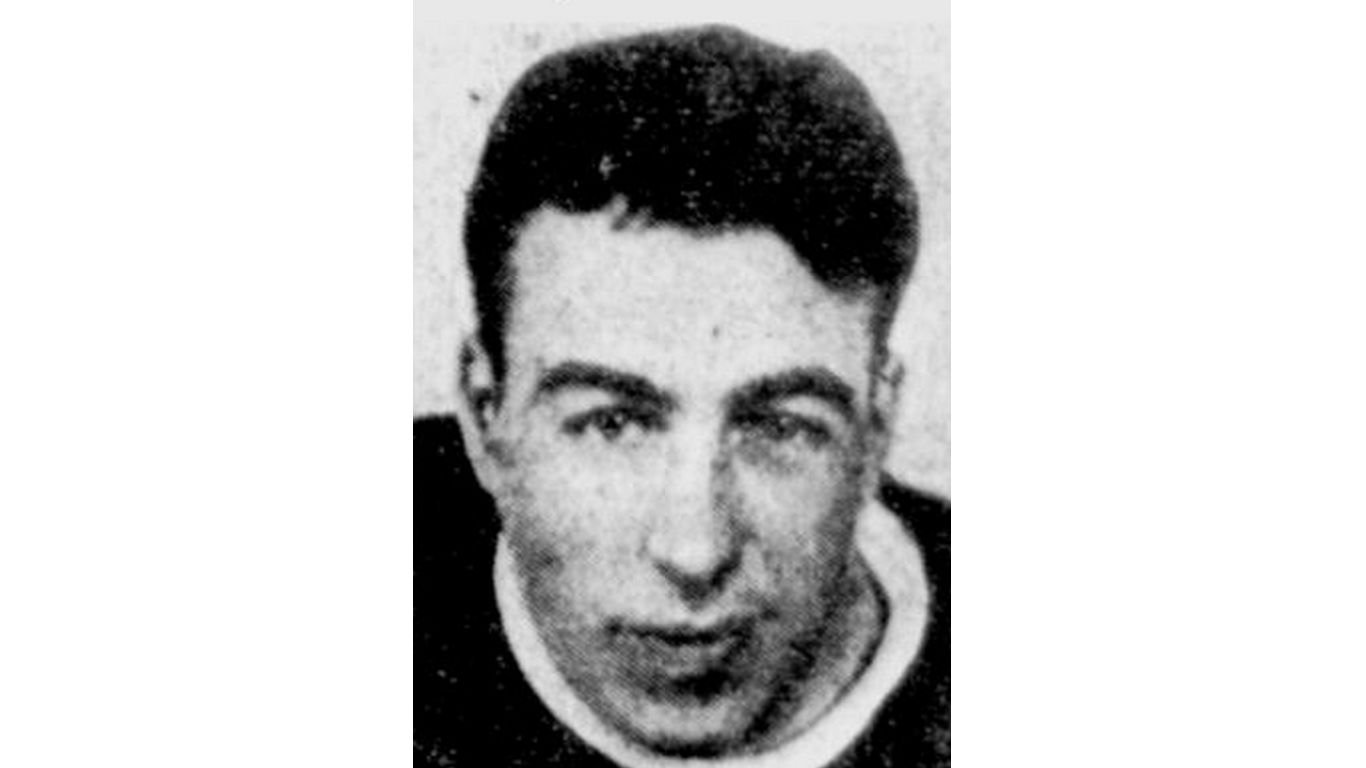
8. Toe Blake
> Teams: Montreal Canadiens
> Record: 500-255-159
> Years active: 1956-1968
> Championships: 8
Though Toe Blake has one of the shorter tenures of any of the coaches on this list, at 13 years, he made the most of his time. Blake took over the Montreal Canadiens in 1955 and was an immediate success, winning five straight Stanley Cups in his first five seasons at the helm. After that, Blake’s Canadiens fell in the playoff semi finals four straight years, before they won back-to-back Cups in 1965 and 1966. Montreal lost in the Cup Finals in 1967, then won it again in 1968, sending Blake out as a winner. He retired after that season, winning a total of eight championships and making the playoffs each of his 13 seasons — a nearly unprecedented run of success.
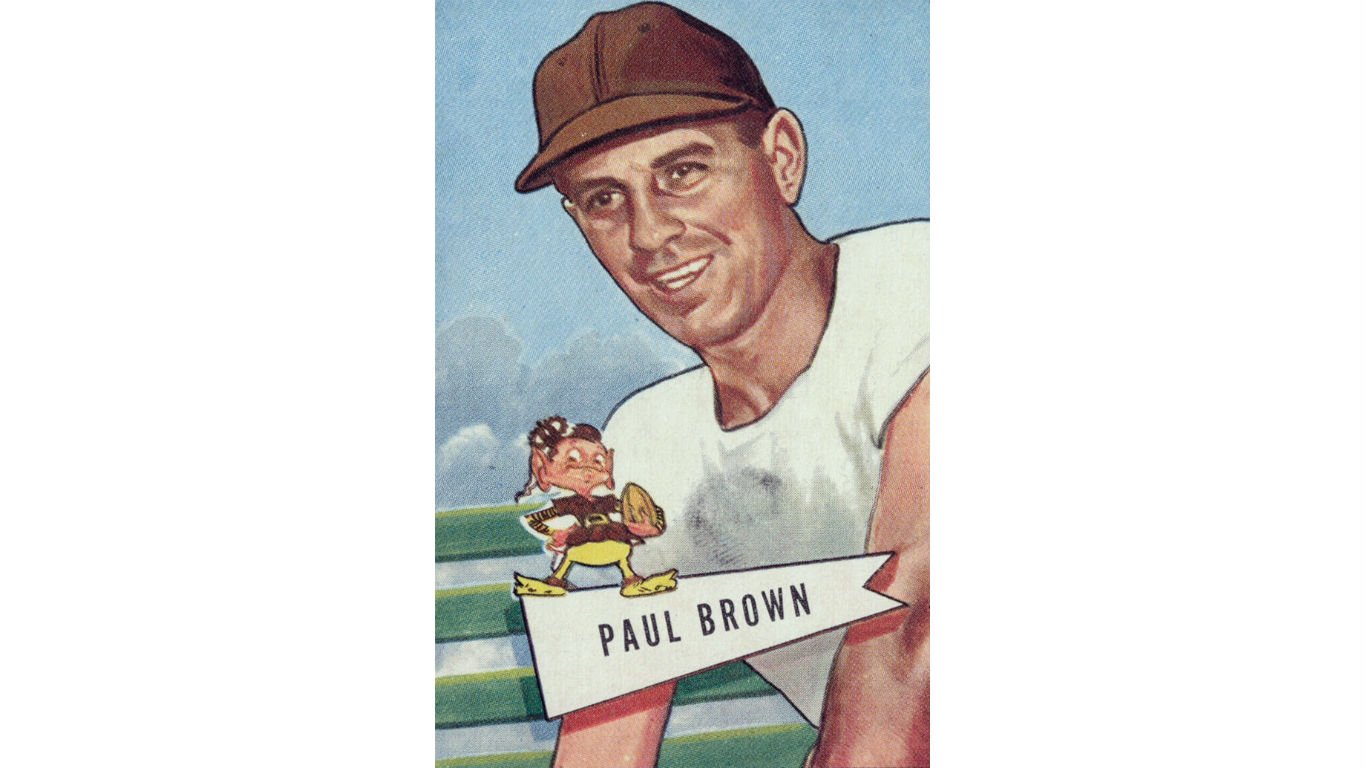
7. Paul Brown
> Teams: Cleveland Browns, Cincinnati Bengals
> Record: 213-104-9
> Years active: 1946-1975
> Championships: 7
Paul Brown was an innovative coach who expanded the use of scouting for college talent. He also used tests to gauge a player’s learning potential and employed analytical tools and film clips to study opponents. Brown created a powerhouse in Cleveland, winning four All-American Football Conference titles before the Browns — named after Paul Brown — joined the National Football League, where they won three championships. Brown had only one losing campaign in 17 seasons. After he was fired by the Browns in 1963 for butting heads with the new management, he returned to the coaching ranks to lead the fledgling Cincinnati Bengals in 1968 for eight seasons, where he was not as successful.
[in-text-ad-2]
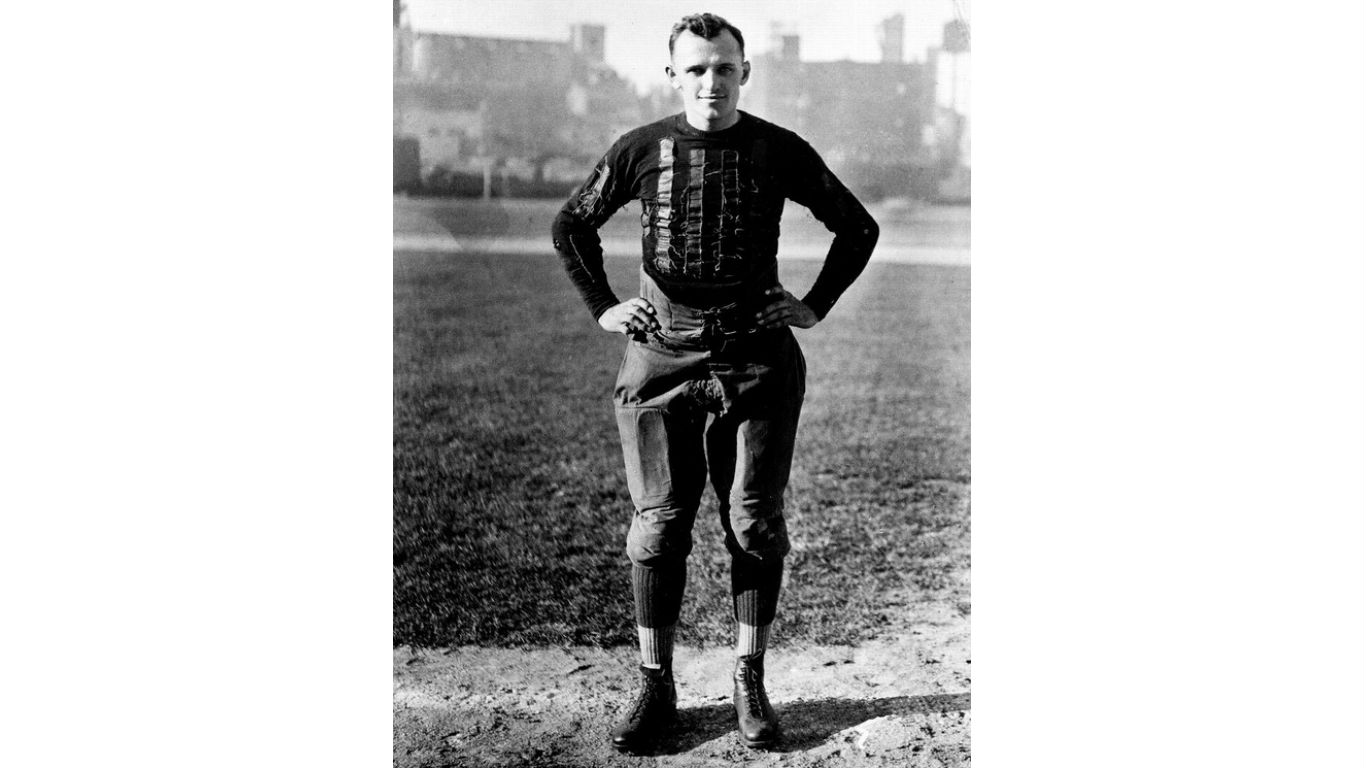
6. George Halas
> Teams: Chicago Bears
> Record: 318-148-31
> Years active: 1920-1967
> Championships: 6
You can’t think of the Chicago Bears without thinking of George Halas. He coached the Bears for 40 seasons, stepping aside three times, and winning a championship each time he returned to helm the Monsters of the Midway. His 1934 squad went undefeated and featured such gridiron luminaries as Red Grange and Bronko Nagurski. Halas won six championships with the Bears, including a 73-0 wipeout of the Washington Redskins in the 1940 title game that displayed the offensive possibilities of the T formation. Halas was innovative in other ways. He was a pioneer in the use of film study; was among the first to hold daily practices; and was a tireless promoter of professional football. His NFL record 318 victories would not be broken until Don Shula did so in 1993.
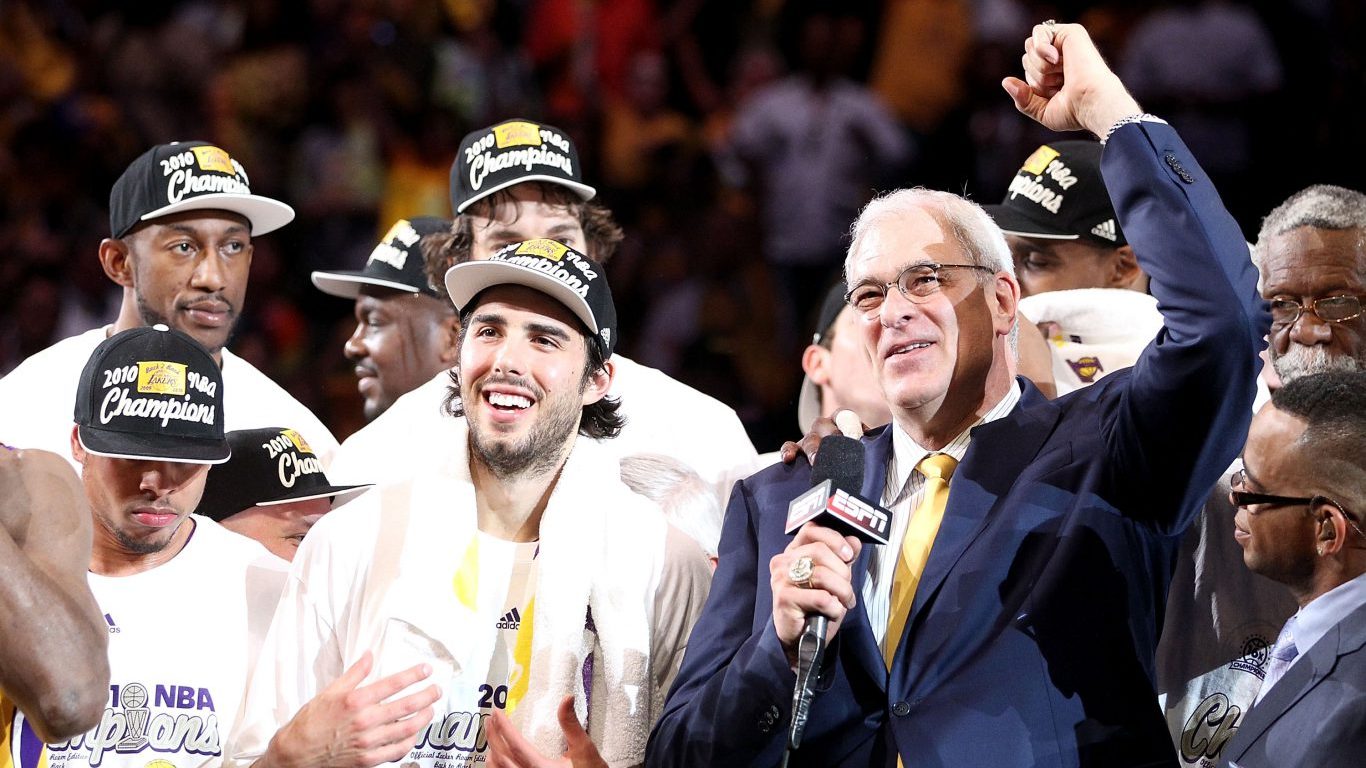
5. Phil Jackson
> Teams: Chicago Bulls, Los Angeles Lakers
> Record: 1,155-485
> Years active: 1989-2011
> Championships: 11
Phil Jackson was a solid NBA player for the New York Knicks in his 20s, but he showed an early aptitude for coaching. He even served as an assistant coach while playing for the New Jersey Nets later in his career. Jackson became a near-instant coaching success once he took over the Michael Jordan-led Bulls teams of the 1990s. Those Bulls had two separate three-peats: 1991-1993 and 1996-1998. Jackson moved on to the Los Angeles Lakers in 1999 and again found instant success, winning three straight titles his first three seasons. His career crescendoed when he won back-to-back titles in 2009 and 2010. He retired in 2011, finishing his career with 11 championships in just 20 seasons.
[in-text-ad]
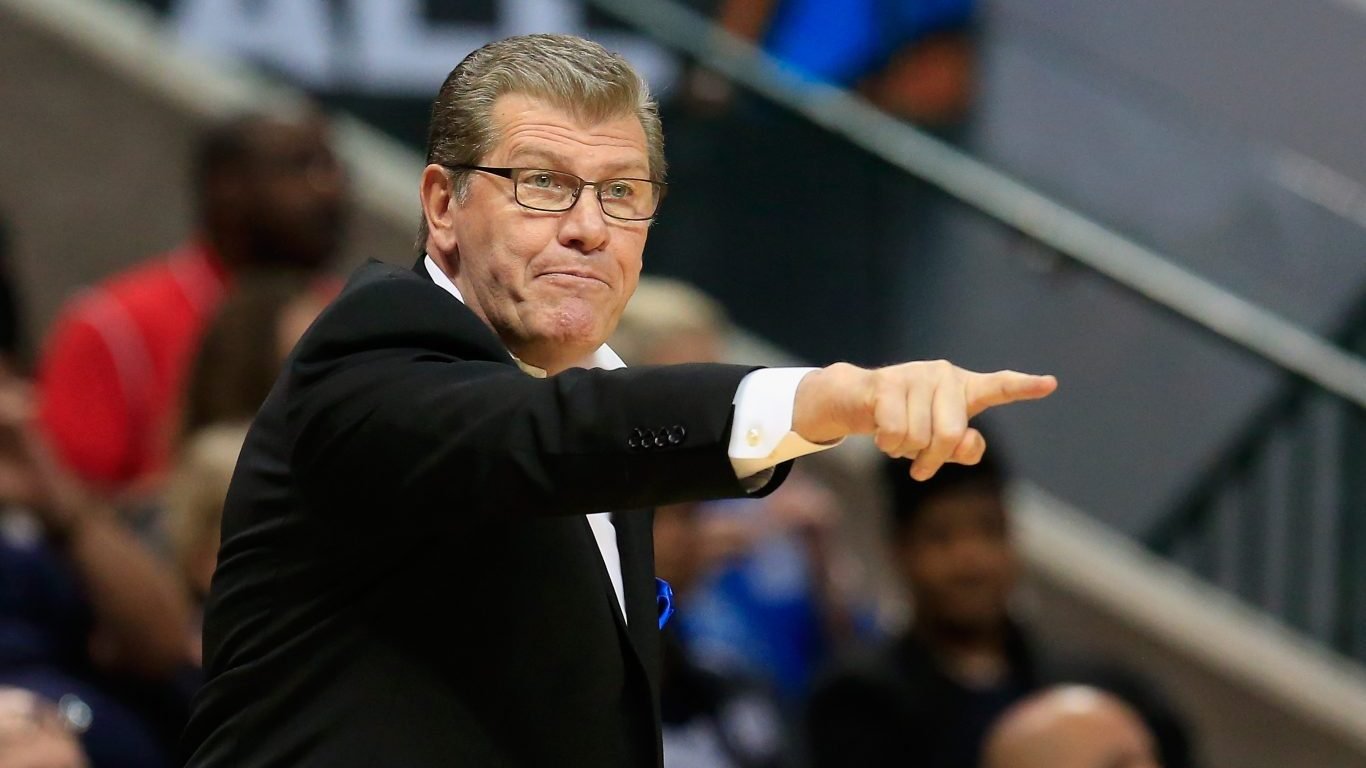
4. Geno Auriemma
> Teams: Connecticut Huskies
> Record: 1,032-136
> Years active: 1985-present
> Championships: 11, 2 gold medals
The University of Connecticut Women’s basketball team has redefined the meaning of the word “dynasty” under Geno Auriemma. Since Auriemma was named head coach in 1985, UConn has won 11 national championships, including six undefeated seasons. Auriemma has also branched out into international coaching as well. He led the U.S. Women’s National Basketball Team to Olympic gold medals in 2012 and 2016. Auriemma was inducted into the Naismith Memorial Basketball Hall of Fame in 2006.
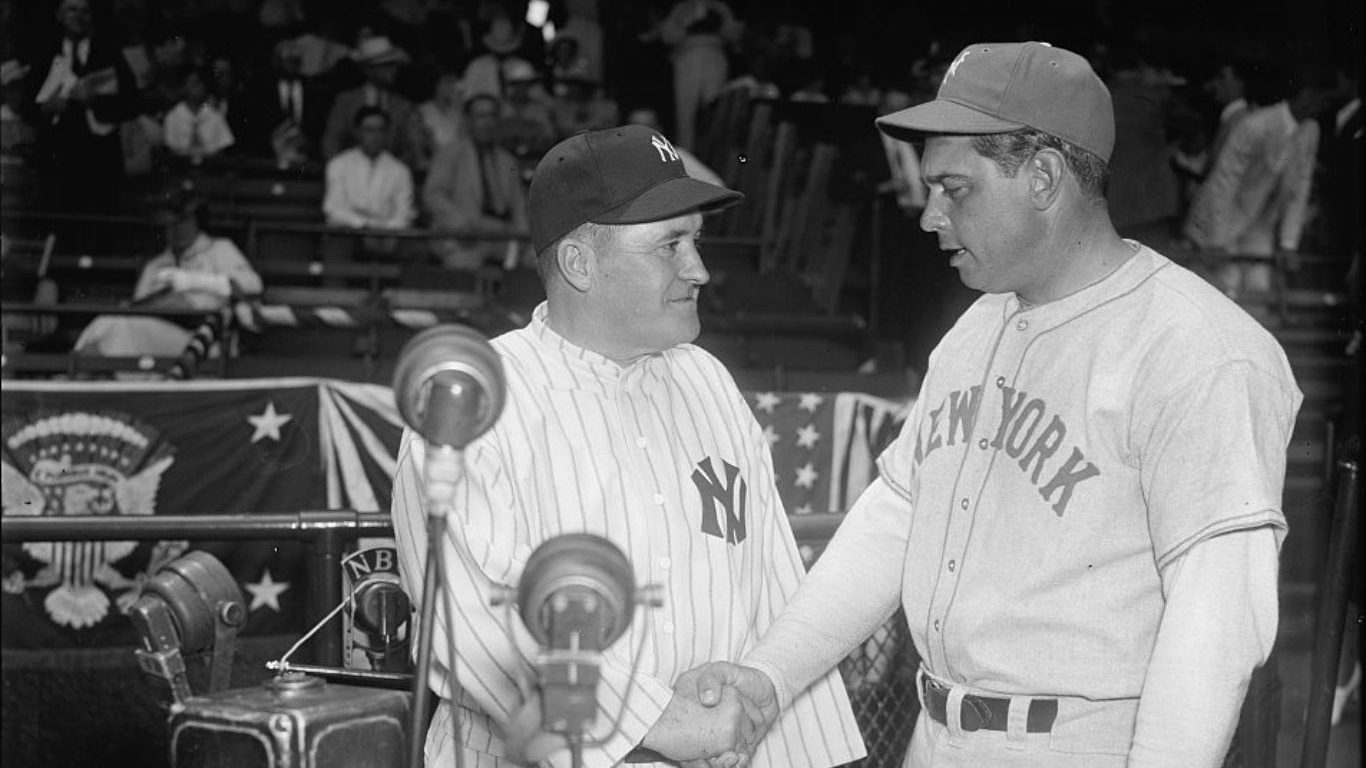
3. Joe McCarthy
> Teams: Chicago Cubs, New York Yankees, Boston Red Sox
> Record: 2125-1333-29
> Years active: 1926-1950
> Championships: 7
Joe McCarthy, known as a disciplinarian, steered the New York Yankees of Babe Ruth, Lou Gehrig, and Joe DiMaggio to seven world championships in the 1930s and 1940s. Before he managed the Yankees, McCarthy had already turned around the fortunes of the Chicago Cubs in the late 1920s. When he wasn’t offered a contract by the Cubs after the 1930 season, the Yankees and Boston Red Sox vied for his services. The Yankees prevailed, and McCarthy took over the club starting in 1931. McCarthy was criticized for being a “push-button manager” because of the wealth of Yankee talent at his disposal. But he pushed all the right buttons. Besides the seven world titles, the Bronx Bombers won eight American League pennants and won 100 games in a season six times. McCarthy managed three MLB teams in 24 seasons and never had a losing record.
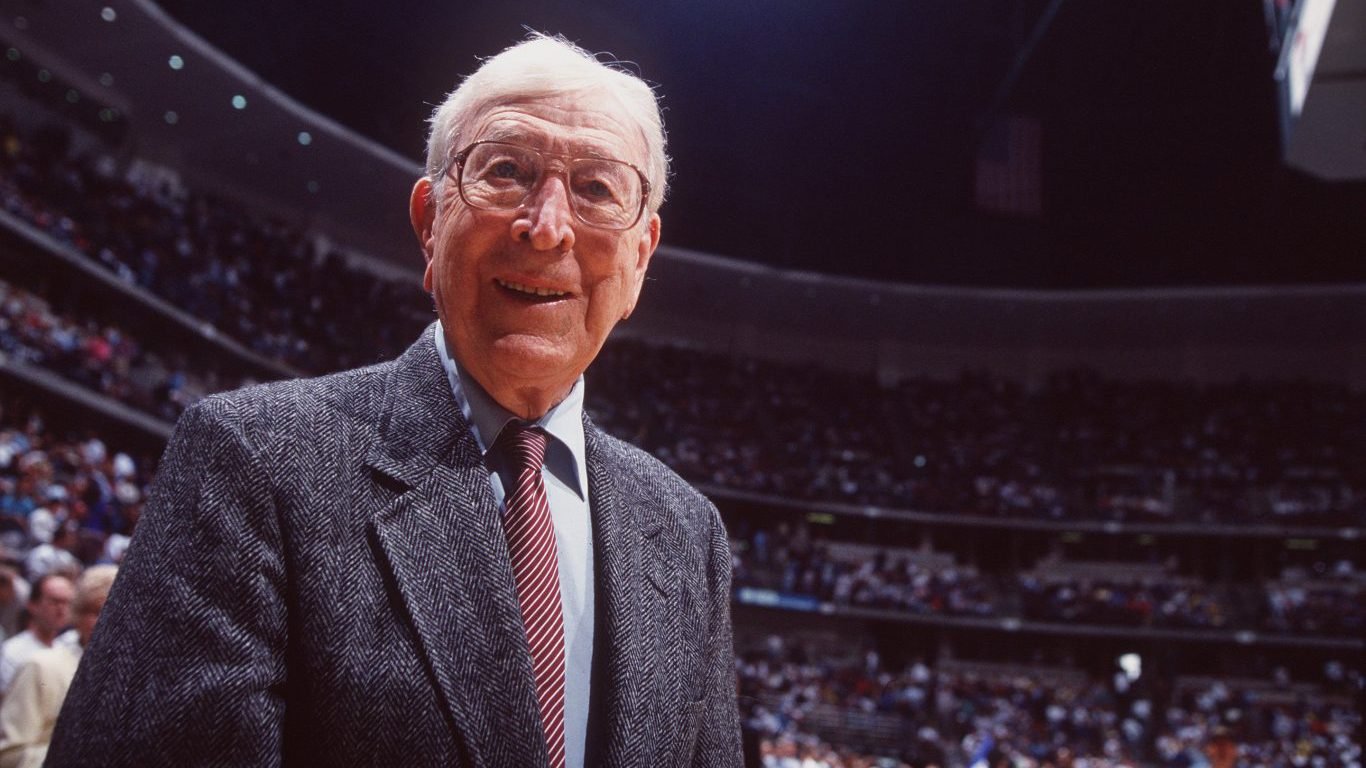
2. John Wooden
> Teams: Indiana State, UCLA
> Record: 664-162
> Years active: 1946-1975
> Championships: 10
John Wooden was called the “Wizard of Westwood” because of his tactical prowess and because the dominance of his UCLA teams in the 1960s and 1970s seemed almost magical. Wooden’s Bruins won with all-time big men like Lew Alcindor (who later changed his name to Kareem Abdul-Jabbar) and Bill Walton, and smaller squads whose stars included guard Gail Goodrich and forwards Sidney Wicks and Curtis Rowe. Under Wooden, UCLA won 10 NCAA championships in 12 years. Four of his Bruins teams went undefeated, and he won 80.8% of his games at UCLA before retiring after the 1974-75 season.
[in-text-ad-2]
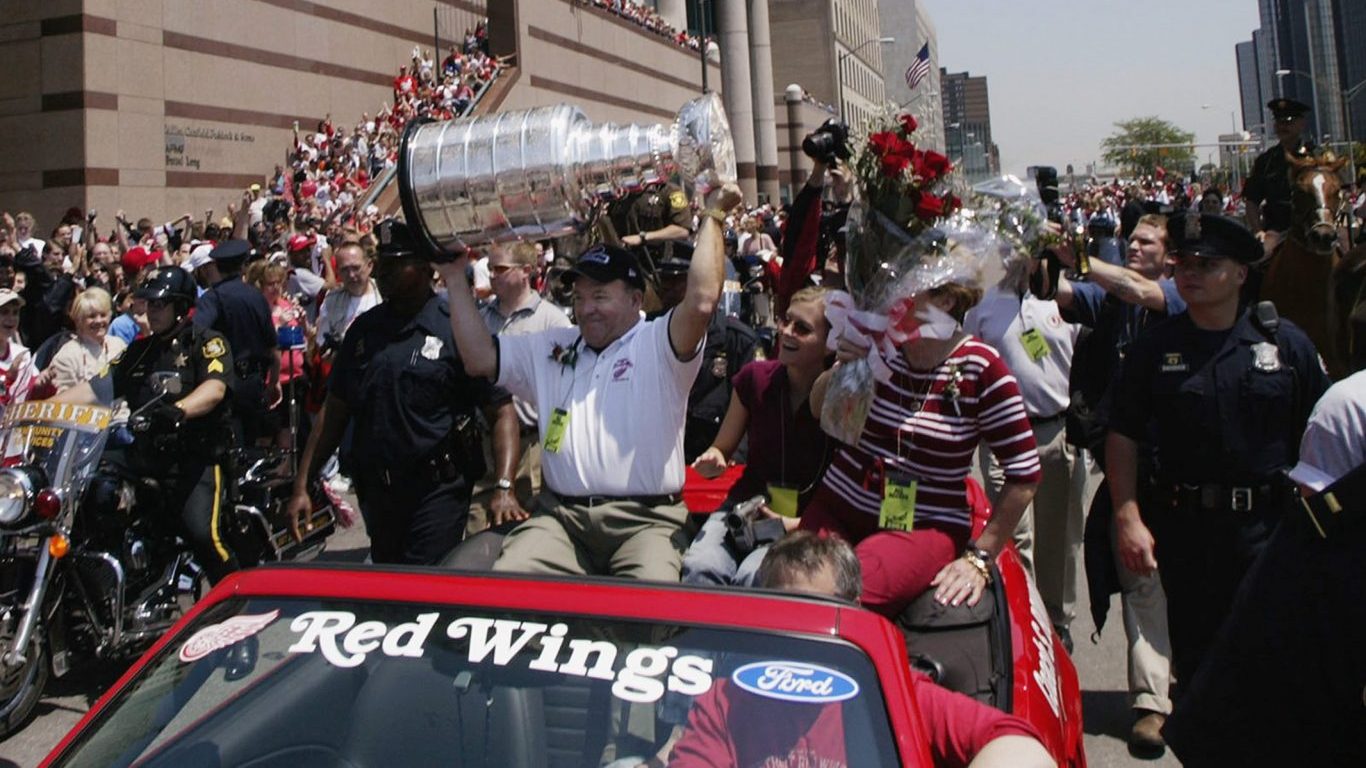
1. Scotty Bowman
> Teams: Montreal Canadiens, Pittsburgh Penguins, Detroit Red Wings
> Record: 1244-573-314
> Years active: 1967-2002
> Championships: 9
Scotty Bowman is far and away the greatest hockey coach of all time, and his success has made him the greatest pro sports coach in history. Unlike many other coaches on this list, Bowman led many different teams and won everywhere he went. Bowman coached five different franchises and won nine Stanley Cups. He won five Cups with the Montreal Canadiens in the 1970s, one with Pittsburgh in 1992, and three more with the Detroit Red Wings towards the end of his career in the late 1990s and early 2000s. He retired with 1,244 wins to his name after 30 seasons — no other hockey coach even has 900. Bowman’s teams picked up 65.7% of the possible points they could have earned, the highest percentage of anyone who coached for a significant amount of time.
Sponsored: Want to Retire Early? Here’s a Great First Step
Want retirement to come a few years earlier than you’d planned? Or are you ready to retire now, but want an extra set of eyes on your finances?
Now you can speak with up to 3 financial experts in your area for FREE. By simply clicking here you can begin to match with financial professionals who can help you build your plan to retire early. And the best part? The first conversation with them is free.
Click here to match with up to 3 financial pros who would be excited to help you make financial decisions.
Thank you for reading! Have some feedback for us?
Contact the 24/7 Wall St. editorial team.
 24/7 Wall St.
24/7 Wall St. 24/7 Wall St.
24/7 Wall St.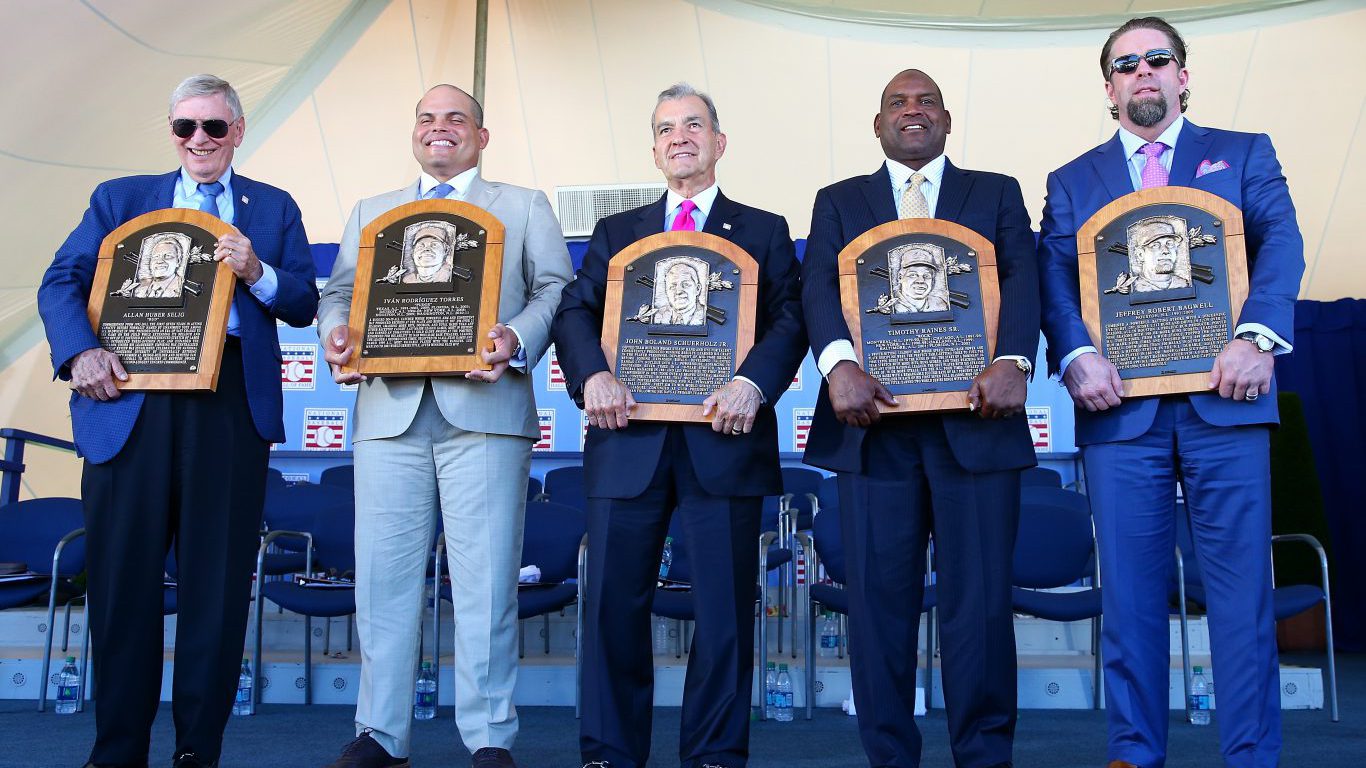 24/7 Wall St.
24/7 Wall St. 24/7 Wall St.
24/7 Wall St.
